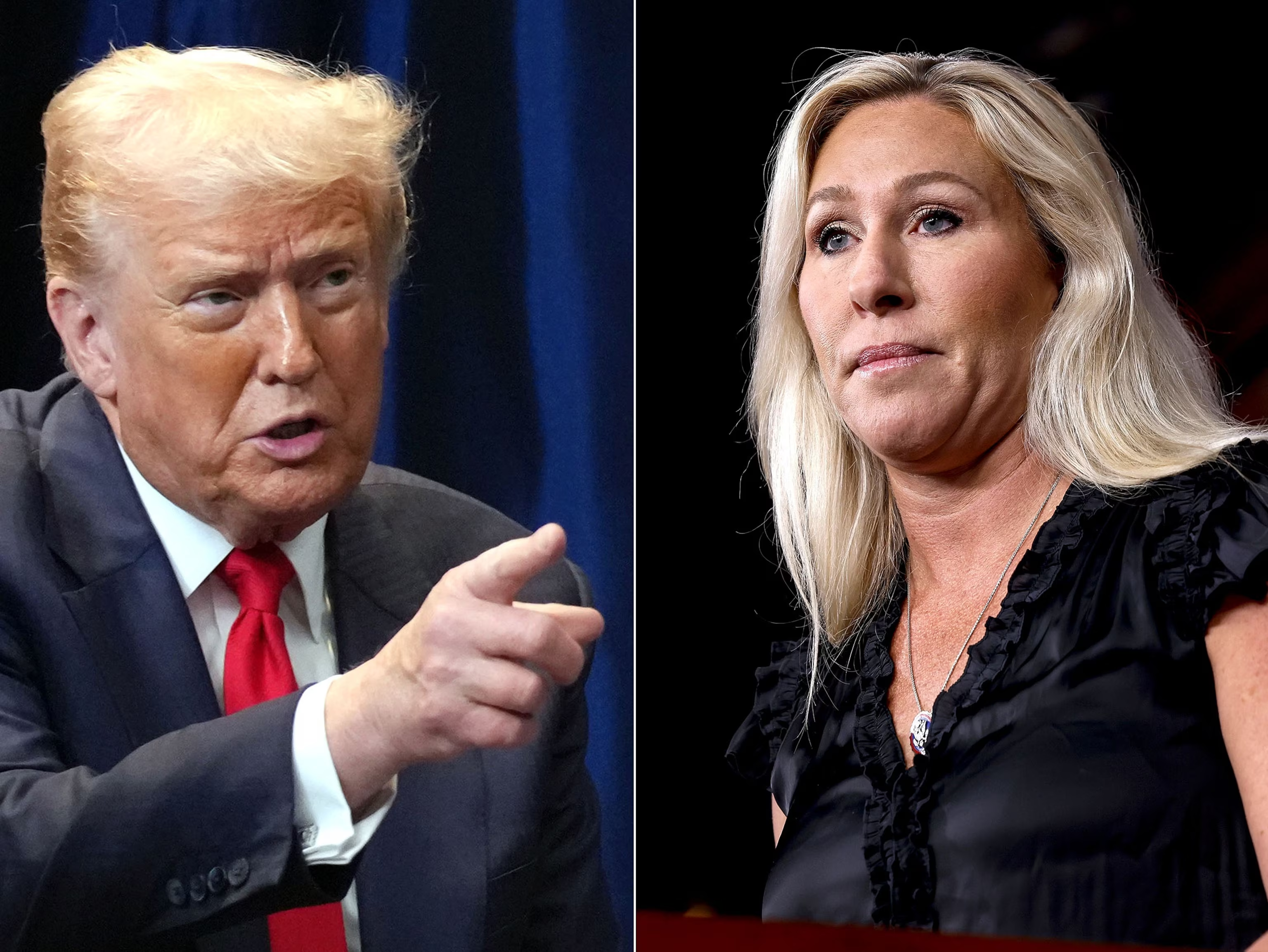Ένα από τα κλισέ που με αξιοπαρατήρητη εμμονή επαναλαμβάνουν οι εν Ελλάδι (και όχι μόνο) δημοσιολόγοι, είναι το περί Donald Trump “businessman και όχι πολιτικού”, ως εξήγηση της ιδιόρρυθμης τακτικής του. Το συγκεκριμένο κλισέ είναι σε αντίθεση με άλλα που μετέρχονται …οι ίδιοι δημοσιολόγοι, για να απαξιώσουν έναν ανίκανο πολιτικό, ή ένα πολιτικό – προϊόν του κομματικού σωλήνα : “θα εμπιστευόσασταν σ’ αυτό τον άνθρωπο να διαχειριστεί ένα περίπτερο;” “δεν έχει κολλήσει ούτε ένα ένσημο στη ζωή του”. Θυμάμαι άλλωστε το “αντίπαλο δέος” του DT, …Μπάρακ Ομπάμα, την εποχή της πρώτης προεκλογικής καμπάνιας του, να περιγράφει την επερχόμενη διακυβέρνησή του ως …διοίκηση μιας επιχείρησης.
Ο βαθμός αλληλοεξάρτησης / ανάμειξης της πολιτικής με την οικονομία, ιδίως στις μέρες μας, προκύπτει απ’ την πληθωρική όσο ποτέ παρουσία παραγόντων του επιχειρηματικού τομέα σε διακρατικές συνομιλίες / διαπραγματεύσεις και απ’ το ρόλο τους στη διαδικασία λήψης αποφάσεων. Αυτό επομένως που φαίνεται απαραίτητο είναι η παρουσία πολιτικών που γνωρίζουν καλά το επιχειρηματικό παιχνίδι, έχοντας ταυτόχρονα τη δύναμη να το κατευθύνουν προς τη συμφέρουσα για τη χώρα τους κατεύθυνση.
Με δεδομένο ότι ένας “καλός businessman” δεν μπορεί παρά να είναι ένας …“σκληρός businessman” καταλαβαίνουμε γιατί η αβρότητα δεν περιλαμβάνεται στις αρετές του κυρίου Trump, γνωστού στα καθ’ ημάς και ως Τραμπάκουλα. Σε οποιαδήποτε περίπτωση, το εκπληκτικό επιχείρημα που αφορά στην επιχειρηματική του ιδιότητα, δεν πηγάζει από το χώρο της “αγνής πολιτικής”, τοποθεσίας μυθικής, ούτως ειπείν ανύπαρκτης, αλλά από εκείνον της woke κουλτούρας, τον ίδιο από όπου εκπορεύονται δακρύβρεχτες κοινοτοπίες περί “ψυχρών αριθμών, πίσω απ’ τους οποίους κρύβονται άνθρωποι”.
Θυμούνται ίσως οι (όχι πολύ) παλιότεροι, το σλόγκαν των middle ‘90s, εποχής “τέλους της ιστορίας”, και συνακόλουθου …τέλους των μεγάλων ηγετών. Αυτό που χρειαζόμασταν, σύμφωνα με τους διακινητές του σλόγκαν, ήταν όχι πλέον χαρισματικές προσωπικότητες αλλά λογιστές, ικανούς και ευσυνείδητους – με τον …Σημίτη να προβάλλεται ως υπόδειγμα του είδους.
Η διαφορά ανάμεσα στο “θετικό” μοντέλο “λογιστής” και το “αρνητικό” μοντέλο “επιχειρηματίας” πού έγκειται; μα στο επίπεδο της ευθύνης, των κυβικών δηλ. (ευφυία, δυναμισμός, αντανακλαστικά) που απαιτούνται για την ανάληψη της…
Η επικράτηση του “λογιστικού” μοντέλου έχει οδηγήσει την Ευρώπη τρεις δεκαετίες μετά, σε κρίση που την απειλεί με εξαφάνιση, υπό την εξουσία μιας υπερεθνικής ομάδας “πολιτικών νάνων” – ακόμα ένα κλισέ, κυρίαρχο στα mainstream media. Οι οποίοι, με εντολές διευθυντηρίων, ορατών τε (λέγε με WEF) και αοράτων, δουλεύουν για την καταστροφή των επί μέρους οικονομιών προς χάριν μιας ενιαίας “ευρωπαϊκής” οικονομίας πολέμου.
Αυτό επομένως που κάνει τη διαφορά για τον Trump, τραβώντας τα εναντίον του βέλη, δεν είναι ότι πρόκειται για businessman. Αλλά ότι δεν είναι ένας ακόμα λογιστάκος, όπως οι Ευρωπαίοι “ομόλογοί του”.

A POLITICIAN OR A BUSINESSMAN? One of the clichés that, remarkably, commentators in Greece (and beyond) never tire of repeating is the notion that Donald Trump is a “businessman, not a politician,” as an explanation for his idiosyncratic approach. This particular cliché stands in stark contrast to others used by the same commentators to disparage an incompetent politician or a politician who is a product of the party machine: “Would you trust this person to manage a kiosk?” or “He hasn’t earned a single paycheck in his life.” Incidentally, I recall Trump’s “rival,” Barack Obama, during his first presidential campaign, describing his upcoming administration in terms of running an enterprise.
The degree of interdependence or intermingling between politics and economics, especially in our times, is evident from the unprecedented presence of business sector players in interstate discussions and negotiations, as well as their role in the decision-making process. Therefore, what seems necessary is the presence of politicians who are well-versed in the business game while also having the strength to steer it in a direction that benefits their country.
Given that a “good businessman” cannot help but be a “tough businessman,” it becomes clear why courtesy is not among Mr. Trump’s virtues, known in these parts as “Trampakoulas” (a playful Greek nickname for Trump). In any case, the striking argument regarding his business background does not stem from the realm of “pure politics,” a mythical and, so to speak, nonexistent place, but from the sphere of woke culture—the same sphere that produces tear-jerking platitudes about “cold numbers” behind which real people are hidden.
Those who are (not too) older may recall the slogan of the mid-’90s, the era of the “end of history” and, consequently, the end of the era of great leaders. According to the propagators of this slogan, what we needed was no longer charismatic leadership figures but accountants, capable and conscientious — with Costas Simitis (former Greek Prime Minister) being presented as a model of this type.
Where lies the difference between the “positive” model of the “accountant” and the “negative” model of the “businessman”? Naturally, it lies in the level of responsibility, or in other words, the capacity (intelligence, dynamism, quick reflexes) required to undertake it.
The dominance of the “accountant” model has led Europe, three decades later, to face a crisis that threatens its very existence, under the guidance of a supranational group of “political dwarfs”—another cliché, dominant in the mainstream media. These figures, acting on the orders of visible directorates (e.g., the World Economic Forum) and invisible ones, diligently work toward the destruction of sovereign economies for the sake of a unified “European” war economy.
Therefore, what sets Trump apart, drawing arrows of criticism against him, is not that he is a businessman. It is that he is not just another little accountant like his European “counterparts.”
Discover more from OANNES
Subscribe to get the latest posts sent to your email.





Τελικά η συμφωνία για τα ορυκτά της Ουκρανίας πού κολάει στο ζήτημα? Εντάξει του Ζελένσκι αρχικά ήταν ιδέα υποτίθεται, αλλά και πάλι μια τρύπα στο νερό φαντάζει εκ των υστέρων.
Παρεμπιπτόντως η αξίωση του Ζελένσκι για μόνιμες εγγυήσεις ασφαλείας δεν έχουν κανένα νόημα. Κανείς δεν μπορεί να δώσει αιώνιες εγγυήσεις ασφαλείας για τίποτα.
Ως προς τς εγγυήσεις ασφαλείας, ο Αμερικανοί του απάντησαν, ευλόγως, ότι τα εκατοντάδες δις και μόνο που αντιπροσωπεύει η συγκεκριμένη μπίζνα για την πάρτη τους, αποτελούν τη μεγαλύτερη εγγύηση, και για την Ουκρανία.
Ο κυρ-Τραμπάκουλας σκέφτηκε νομίζω (δεν είμαι και σίγουρος) το συγκεκριμένο ντιλ, ως μέσο για την ενίσχυση της “στρατηγικής θέσης” των ΗΠΑ στην παγκόσμια αγορά σπάνιων γαιών, μειώνοντας την εξάρτηση από χώρες όπως η Κίνα. Ταυτοχρονα θεώρησε αυτόν ένα κατάλληλο τρόπο να πάρει πίσω λεφτά από εκείνα που η προηγούμενη κυβέρνηση διοχέτευε αφειδώς στην Ουκρανία. Το κόλπο διαπλέκεται με μια συνολική φάμπρικα που έχει στηθεί με τη συμμετοχή της Blackrock, για τη δημιουργία ενός επενδυτικού ταμείου προσέλκυσης κεφαλαίων προς ανοικοδόμηση της Ουκρανίας. Η Blackrock έχει επενδύσει επίσης σε εταιρίες που …δραστηριοποιούνται στον τομέα των σπάνιων γαιών. Ο (εμετικός) Larry Fink, CEO της Blackrock είναι “όπως έχω επανειλημμένα τονίσει”, όχι μόνο κολλητός του Trump, αλλά και οικονομικός του σύμβουλος.
Όπως θα έχεις καταλάβει, δεν μπορούμε να παίρνουμε τα λόγια του Τραμπάκουλα τοις μετρητοίς. Ο αμύθητος ορυκτός πλούτος της Ουκρανίας είναι τόσο χειροπιαστός όσο και ο αντίστοιχος της Ελλάδας. Γενικότερα η συζήτηση περί Ουκρανικού κινείται από την αρχή στο χώρο του παραλόγου. Εξ ου και η αδυναμία επίλυσης του ζητήματος.
Το πιθανότερο είναι ότι έχεις δίκιο, κι αυτό γιατί όπως γίνεται φανερό από χίλιες δυο πλευρές, έχουμε ανεπιστρεπτί και εφ’ όλης της ύλης εισβάλει, σύσσωμοι, στο Twilight Zone.
Ένα παρήγορο που έμαθα σήμερα είναι ότι, από το New Pandemic Τreaty που, κατόπιν καθυστερήσεων και μαραθώνιων συζητήσεων ψηφίστηκε τις προάλλες, αφαιρέθηκαν οι “επίμαχες διατάξεις” περί διακρατικής επιβολής με εντολή WHO υποχρεωτικών εμβολιασμών, λοκντάουν κλπ. Όχι ότι αποτελεί καμιά σπουδαία εξασφάλιση, αλλά είναι κάτι.
Πράγματι σποραδικά εμφανίζονται ορισμένες χαραμάδες φωτός. Και ας μην ξεχνάμε ότι στον κόσμο της αμείλικτης σχετικότητας το φως αποτελεί την απόλυτη σταθερά!🌞